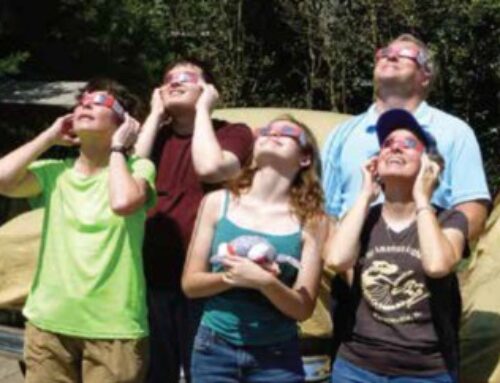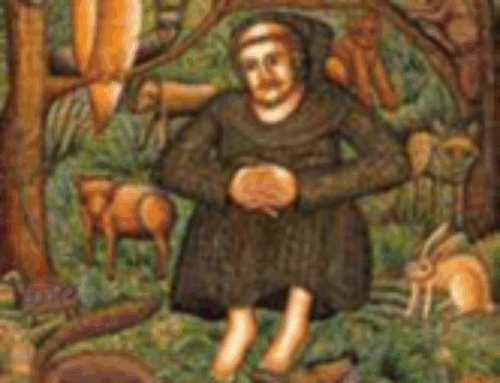A Historical View
By William Wicks, OFS, NAFRA Historian 2005 – 2012
I believe strongly that as Secular Franciscans, we are called to accept all people as equal under God; our Rule testifies to this by stating “in the divine seed in everyone.” (Rule 2:19) And who can prejudge the divine seed? As Franciscans, we are called to be sensitive to the diversity of culture. In 2007, the Quinquennial Congress in Pittsburgh, Pennsylvania was dedicated to Multiculturalism.
The following is a brief chronology of events related to the Secular Franciscan Order during the early period of race relations in the United State of America. This information can be found in A History of the Secular Franciscan Order, Volumes I and IIB.
1938 National Executive Board Meeting
“The Color Question” was a topic addressed at the National Executive Board Meeting held in Cleveland, Ohio, in August 1938. The dialogue related to how to respond to the situation in which white members complained about the presence of “Negroes” at their fraternity meetings, and how the question of Negroes” at a convention should be addressed; some hotels did not allow them room accommodations. Here are excerpts of the meeting dialogue. Board Chairman Fr. Thomas Grassman, OF. Conv., stated, “We must more aggressively come out for the equality of all in the sight of God and because of the immortal soul.” When the topic of a separate convention was proposed, Secretary Maximus Poppy, OFM, argued, “That amounts to Jim Crow.…” Fr. Max ended the discussion with “…any members who feel that they cannot s u b s c r i b e t o t h i s p o l i c y [ o f e q u a l accommodations] are free to remain from the convention. Thus, liberty is safeguarded, and the principle, even though we lose their good will.”[1]
1947 Quinquennial Congress
This “Color” dilemma resurfaced in the planning of the 1947 Quinquennial Congress held at the Netherland Plaza Hotel in Cincinnati, Ohio. “The question relative to our Colored delegates was then raised, since the Netherland Plaza Hotel refused to house them. A Friar [not named] said that he had made arrangements with the Manse Hotel, a colored businessmen’s hotel…. Arrangements were also to be made to reserve a special dining room in the Netherland Plaza Hotel and to designate it as the Convention dining room. The Colored delegates could eat freely here with our white delegates. This was necessitated by the fact that the hotel management declared that the Colored could not eat in the public dining room of the hotel, nor perhaps in any of the adjacent White restaurants.” That is “the way it was.”[2]
1961 Action for Interracial Understanding Apostolate
The Action for Interracial Understanding (AIU) began as an apostolate for the Third Order in 1963, a year before the passing of the 1964 Civil Rights Act. It was a program designed to educate members on race relations and to encourage them to participate in non-violent demonstrations in support of Civil Rights. “Our apostolate, ‘Action for Interracial Understanding,’ certainly needs paramount attention in all fraternities. Good race relations must be a concern of every tertiary. No tertiary can close his eyes and ears to the tremendous problem. Love of God and love of neighbor demands that you involve yourself in helping Negroes, Puerto Ricans, Mexicans and other minority groups in obtaining a true recognition of their dignity as sons of God and your brothers in Christ. This is no time to wring your hands. It is a time of action.”[3] It should be noted that many Tertiaries participated in the famous 1963 Washington march.
 1968 –1971 Waldeman (Wally) Roebuck,
1968 –1971 Waldeman (Wally) Roebuck,
National Federation Prefect (Nation Minister of the Order on left)
Although the apostolate was motivated by the “African American” Civil Rights movement, all minority groups were included. Robert Fenton was the first Executive Director. Waldemar Roebuck, who later became president of the North American Federation (the national OSF organization at the time), was very much involved in the AIU apostolate.
Five years after Wally presented the St. Francis Peace Award to Dr. Martin Luther King, Jr., Dr. King, 39, was assassinated. When race riots broke out in Harlem, Wally, now a Secular Franciscan for 40 years, hit the streets with a copy of the “peace prayer of St. Francis.” He was a longtime civil rights activist and recipient of the Pierre Toussaint Award from the Archdiocese of New York. He passed away in 1999 on All Saints Day.
2007 Quinquennial Congress
More 400 members of the Order participated in the 17th Quinquennial Congress in Pittsburgh, Penn. The theme of the congress was Many Cultures–Through Francis–In Christ. This multicultural theme was intended to raise the level of awareness of cultural diversity within the Order.
 A Letter to the Secular Franciscan Order from 1963
A Letter to the Secular Franciscan Order from 1963
In 1963 Dr. Martin Luther King, Jr., was awarded the St. Francis Peace Medal. The following is a letter of gratitude addressed to the Executive Secretary of the Third Order. These words were written 57 years ago and still resonate today. Our world has changed greatly over the years, yet the insights and aspiration of Dr. King are as important today as they were when this letter was written.
This is a rather belated note again to thank you and the Third Order of St. Francis for honoring me in such a significant way with your St. Francis Peace Medal. It is an honor that I will cherish as long as the cords of memory shall lengthen. In a real sense, your desire to bestow upon me this distinguished award was expressive of two important points. On the one hand, it expressed the new and vital willingness of the Christian church to take a concrete step in the direction of identifying with the struggle for racial justice in our nation. Since I happen to be a Protestant, the awarding of the St. Francis Peace Medal expresses the new ecumenical concern that is now greatly alive in both Protestant and Catholic circles. So, I am convinced that your generous gesture toward me will go a long, long way toward bringing about new levels of fellowship for all Christians, a move so nobly initiated by Pope John, and it will give those of us engaged in this difficult yet challenging struggle for freedom and justice, the consoling awareness of the support of the church.
[1] Wicks, William H., A History of the Secular Franciscan Order in the United States, Volume I (1917-1942), Barbo Carlson Printing, Lindsborg, KS, 2007, 247- 249
[2] Minutes of Special Executive Board Meeting, January 1947
[3] Franciscan Herald and Forum, August 1963, 226




Leave A Comment